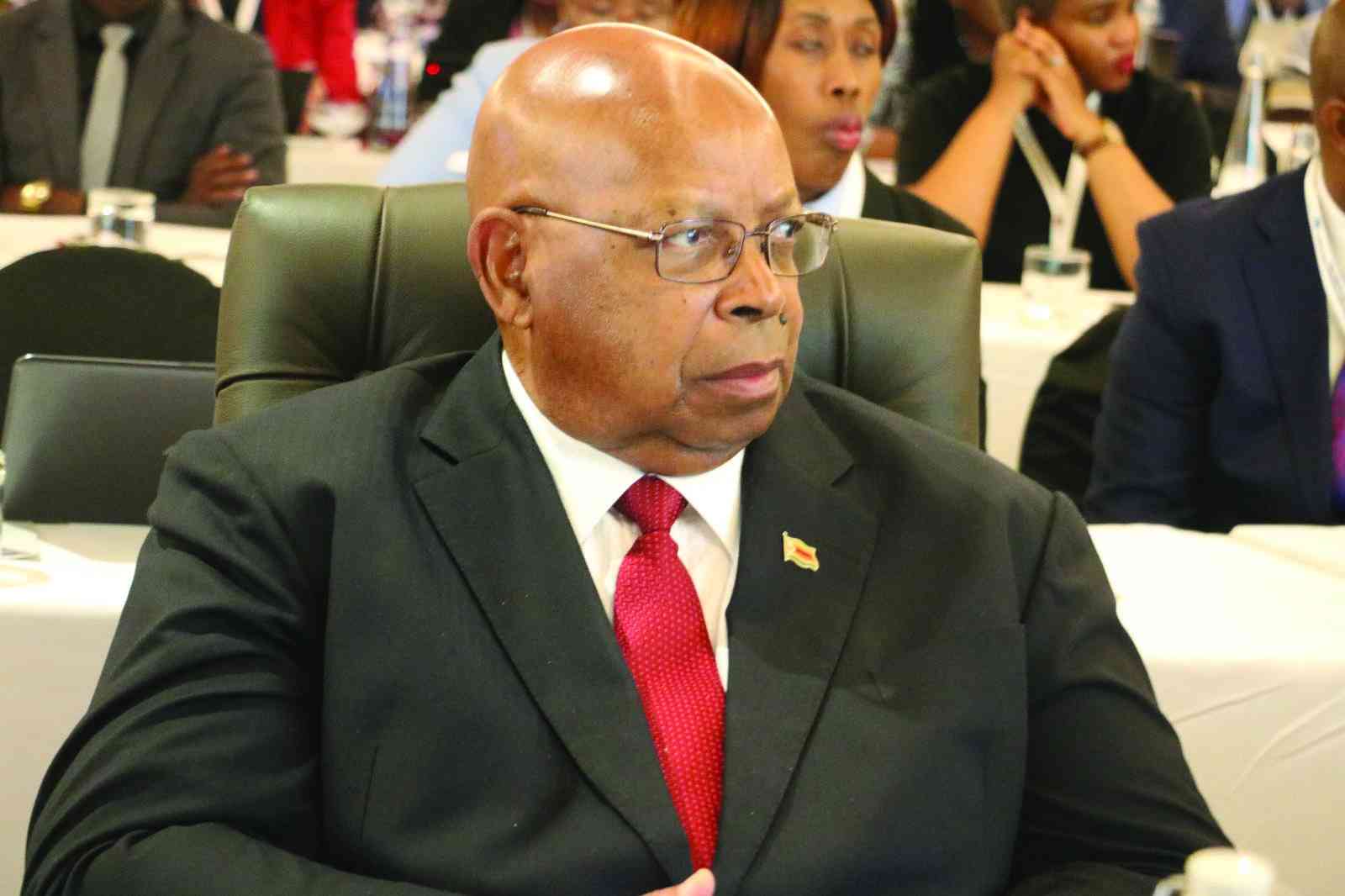
THERE is no price for guessing where the maternity ward is found in a hospital. It is in this ward that you hear crying babies.
Giving birth has never been easy. They say nurses shout, ‘push mama, push’. That is why midwifery is now a profession chosen by very experienced nurses, known in Shona as mbuya nyamukuta or elderly midwifery nurses. Basically, the birthing process is cumbersome. This explains why birthing time is called “labour time”; it’s hard labour.
Zimbabwe in 1980
Zimbabwe started well in 1980. All things economic and social were working. In 1987, the system changed — the founding ceremonial president, the late Canaan Banana was replaced by the late Robert Mugabe as the Executive President.
The pregnancy that gave birth to Zimbabwe had been carried from 1923 to 1961 and then through to the 1979 constitution.
Following the break-up of the Federation of Rhodesia and Nyasaland, Zambia and Malawi gained their independence in the 1960s.
Zimbabwe known then as Southern Rhodesia did not gain majority rule until 1980. Of course, attempts to cater for the pregnancy were seen in some arrangements such as the African National Council (ANC) of 1974 as a compromise between the British and Rhodesians.
In 1976, the Zimbabwe African National Union (Zanu) and Zimbabwe African People’s Union (Zapu) formed the Patriotic Front.
- Govt yet to consult us: Sithole family
- Lest we forget the genesis of our independence
- Politicians, please have a heart for the people
Keep Reading
When a pregnancy is real, the mother gets presents from many angels and angles. The Geneva Conference, pressure was applied by South Africa and the United States of America (USA), and the British and United Nations sanctions.
In addition, the non-recognition of Bishop Abel Muzorewa’s presidency under Zimbabwe-Rhodesia in 1979 was because the Patriotic Front had not participated in the elections that gave him power.
Even the Commonwealth Heads of Government Meeting (Chogm) in Lusaka in 1979 or the signing of the Lancaster House Agreement by December 21, 1979, all tried to birth a new Zimbabwe.
About the presidential characters
The Lancaster House Agreement was like that soft slap that is given to a child if he/she fails to cry soon after birth. The rejection of Muzorewa was followed by sudden shock.
Just like the bishop-like slap under Zimbabwe-Rhodesia, Canaan Banana became another theologian to lead Zimbabwe. He wanted to rewrite the Bible. In fact, he wrote the Ghetto Bible.
He was later accused of the offences of sodomy and there are case laws on his other problems such as S v Banana where he was charged with criminal offences. He was not buried at the Heroes’ Acre due to his controversies.
Still in the maternity ward, Zimbabwe as the child received a hard slap in 1987 when Mugabe became the Executive President.
Mugabe was an economist, teacher, and lawyer. For the first time, we heard of things falling apart and the centre not holding. We heard of the dismissal of Zanu-PF secretary generals, such as Edgar Tekere and the notion of one centre of power with the executive presidency assuming the roles of first and second secretaries of Zanu PF.
We cannot forget the sibling rivalry between Zanu-PF and PF-Zapu leading to the Unity Accord in 1987. Zimbabwe was still trying to stabilise its governance.
The transition from Banana’s ceremonial presidency to Mugabe’s executive presidency was the craftiness of the stockholders and midwives who wanted the child called Zimbabwe to adjust from a British-brokered transitional government to a centralised governmental system.
Mugabe assumed direct control of everything if not all things government. At home, he became the chief maker of the domestic policy as Commander-in-Chief of the Defence Forces, chancellor of all universities, Head of State and government. These were his identities.
The administrative president
The experience of birth places both the mother and the child in a crisis. Zimbabwe has been in situation and control rooms from Gukurahundi, the fast-track land reform, the operations such as remove the filth (Murambatsvina), and the June 2008 presidential runoff problems.
Zimbabwe was under the straightjacket system of the “security stockholders” of 2008 and 2017.
Thabo Mbeki, the former South African president, became the godmother or the German Rudolf Clausius of our Zimbabwe. For those who follow Clausius like me (1822-1888), he was the one who settled the battle between the conversionists and conservationists by declaring that two principles are in play, ‘one involving the conservation of what is soon called energy in exchanges of heat and mechanical work, the other the conversion of heat into energy’.
Mbeki realised through quiet diplomacy that the baby carried by the mother had reached its maximum growth and weight. Quiet diplomacy produces soft power with a loud impact. When a child reaches this point, it sends its mother into a crisis.
Whether driven by fears that some “hostile nations could attack Zimbabwe or that all-weather friends could support Zimbabwe, the child Zimbabwe was able to read the entire birthing process well. A marriage of convenience between the original MDC, the MDC-T, and Zanu PF became something of sibling compromise.
We stopped this art of shifting blames through, child X, is mom’s top fan and Y, is father’s top shutter of relations. But wait; let us not forget that Mbeki benefited from a transparent plan of succession crafted by Nelson Mandela.
Pains during delivery will remain!
Talking about labour pains is not a serious matter in men’s circles or among young unmarried people. They declare, ‘I’m not going to have pain during delivery’. I know my dear Alice once said this until she asked me to come and sing for her.
I remember holding our son, Rajesh, to show that she was a mother who had experienced what the Bible calls birth pangs or travails.
While Rajesh transitioned from the womb to the room where he was crying out loud, he did not know the emotional and physical turmoil faced by the mother. Zimbabwe has been all through these stages.
Time to see Zim’s crisis in a new light
Those blessed with the gift to be in politics should strive to have the heart for the people. The transition that renewed Zanu PF in 2017 came as a guardian coup.
It ushered in a transition supervised by three presidents in quick succession. When Mugabe resigned after having fired then Vice President Emmerson Mnangagwa, it followed the eligible president was Phelekezela Mphoko.
He did not assume the presidency because of the pains and labour associated with what I call the “Second Mgagao Declaration”, also known as the Operation Restore Legacy (ORL).
This was an aftermath of Africa’s “First World War” which started in the Democratic Republic of Congo (DRC) in 1998. Zimbabwe and eight countries participated in a war under the Operation Sovereign Legitimacy.
The 2017 was a continuation of that First African World War against global forces. The crisis of birth forces a child to talk. The crisis of mobility forces the child to walk. The crisis of identity forces some to say Zimbabwe is ours and others to say Zimbabwe is for everyone.
This is just like a teenager struggling to understand puberty and adolescence. In negotiation we call that ‘children throwing tantrums’ at the parents.
Those who are now 30-50 years are in mid-life crisis in Zimbabwe. Add to this some who joined opposition politics thinking one day the opposition would rule but continue to dream in faded ways.
Sadc, potential for insider mediation
It is high time all the politicians in Zimbabwe outgrow their previous levels in Zanu-PF, PF-Zapu, MDC, Citizens Coalition for Change, Build Zimbabwe and so forth.
We need a glorious jewel of Africa where politicians have the heart of leadership. Well-meaning politicians should be also good for the people. We must stop being scholars just full of bookish knowledge.
We need to rise with confidence that cuts beyond our injured souls. With insider mediation, Father Fidelis Mukonori may fail to convince a Mugabe because of close friendship ties, but we know a Gideon Gono will do so because of strategic elimination of communicative distances.
I am sure the current President Mnangagwa can talk to the fourth President on how to administer the succession plan for posterity.
Jacob Mudenda, the current Speaker of Parliament, was the Zimbabwe’s fourth President. When former VP Mphoko did not show up to be appointed, it was the Speaker who had to fill the power vacuum.
He also became the de facto appointed President when he wrote those letters inviting sitting Heads of state. His power was felt across the world. President Mnangagwa must ask Mudenda how he managed to do it during that time when the crisis hit the nation.
- Hofisi is an itinerant researcher. — sharonhofii@gmail.com.






